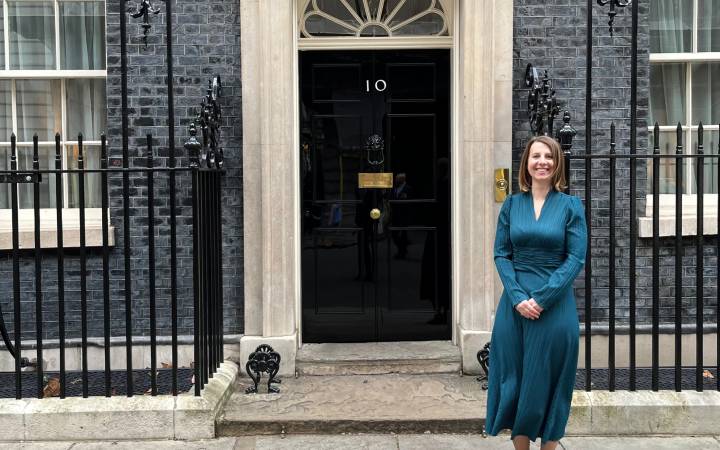Q&A with Creative Writing tutor Dr Adam Baron on publication of his book You Won't Believe This (HarperCollins, 2019)
Posted Friday 19 July 2019

Adam, what made you decide to start writing for younger readers?
I just had an idea for a novel narrated by a young boy who's mother has a breakdown due to a traumatic incident in her past. It was my agent who decided that it was a novel for children, which was fine by me. HarperCollins then asked me to write three books for this age group, so here I am.
 Adam BaronHow do you describe your readers without using an age range that might exclude those at either end of the range?
Adam BaronHow do you describe your readers without using an age range that might exclude those at either end of the range?
I say that readers from nine up will enjoy it. I've had letters from all age groups, including adult readers.
How did you come up with your protagonist, Cymbeline Igloo?
I think he came up with me. He's very persistent. He won't leave me alone.
What's the most gratifying response to your recent work?
I love the pictures, articles and movie trailers that children have made based on Boy Underwater. At a recent school visit I met a child who loves books. He's very dyslexic however and previously had only ever experienced audio books. Reading is very hard for him and no book had motivated him to get through to the end. Boy Underwater was the first book he ever read and he is now reading You Won't Believe This.
Are the strategies used to engage younger readers very different from those you use to engage adults?
Not really. I try to write with dynamism and verve. I love writing in the first person, with a strong voice. I like to blend my ideas into narrative and not to be polemical. Writing for children does offer me a clearer sense of who my readers might be however.
How has working with schools revealed to your which aspects of the work are connecting with readers?
Reading my work aloud to young people has really helped. They don't lie, or pretend to be interested when they are not. They are brutally honest. One writer I was doing an event with recently was asked by a Year 9 student why she was dressed like a six year old. I love that kind of honesty.
Do any principles of crime fiction, in particular, remain valid when writing for children
Certainly. You need to hold the story back and write with a voice that will carry the reader to the end. Processes of action and reflection also apply. You need to drive your story into the physical realm and let your events carry forward your 'meaning'.
 'You won't believe this' book coverAre your own children fair critics of your work?
'You won't believe this' book coverAre your own children fair critics of your work?
Yes. I read my work to them and I can tell when they're not interested. My eight year old is brutal.
Is children's fiction taken seriously enough by academia?
Well now. Sales of adult literary fiction are falling. University Humanities departments used to supply our culture with people who maintained a love of reading throughout their lives, and bought books. Universities are not doing this so well any more, which stands in great contrast to schools who are doing an incredible job motivating children to read. Universities should take children's literature seriously because the children who are reading now might just want to study Humanities in the near future. Without children's passion for reading, the Humanities as a subject area would wither.
What's next for you? Are you writing anything else?
Yes. I'm writing my third novel for HarperCollins and waiting for a new contract offer. I also have a short novel for adults that I'm thinking about...
Contact us
General enquiries:
Journalists only:
- Communications team
Tel: +44 (0)20 8417 3034
Email us



